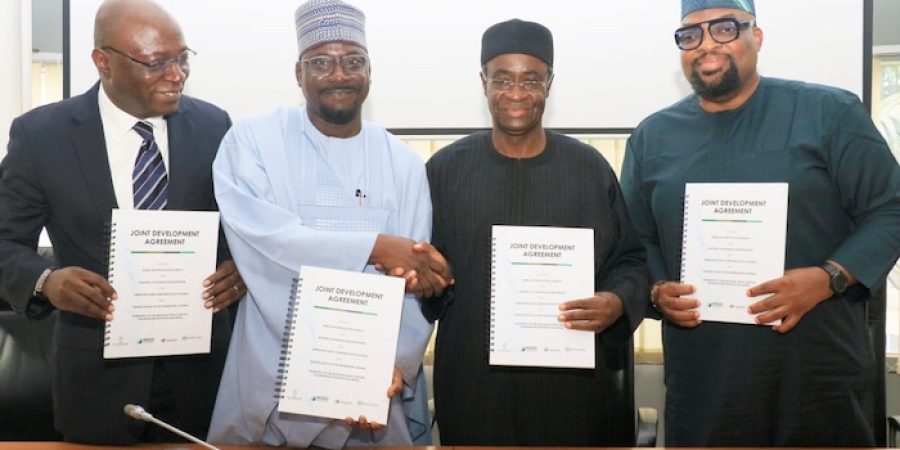Rural Electrification Agency (REA) signed a Memorandum of Understanding (MoU) with Budget Office of the Federation, Infrastructure Corporation of Nigeria (InfraCorp), and Ministry of Finance Incorporated (MOFI), to mark the official launch of National Public Sector Solarisation Initiative (NPSSI).
A statement in Abuja by the agency at the weekend described the N100 billion initiative as a flagship government-led programme designed to accelerate the deployment of distributed solar energy solutions across Nigeria’s public sector institutions, including schools, hospitals, security posts, government offices, among others.
At the core of the joint agreement, which took place at the Budget Office of the Federation, REA said, was the urgent need to power critical infrastructure with clean, reliable energy, while moving away from diesel dependence and reducing the public sector’s carbon footprint.
It said the signing ceremony for the NPSSI not only strengthened the alliance and collaboration between the government and the private sector in the energy sector but also aimed to advance the country’s drive for localised renewable energy infrastructure and reverse unsustainable energy financing mechanisms.
Managing Director/Chief Executive of REA, Abba Aliyu, stated that NPSSI was part of a broader strategy to position Nigeria as the renewable energy hub of Africa, while promoting innovation, local manufacturing, and sustainability in energy infrastructure financing in Nigeria.
Aliyu stated, “What makes this truly remarkable is the collaborative spirit behind it. We are witnessing a new era of inter-agency synergy, driven by creativity, fiscal responsibility, and a shared determination to reduce the cost of governance while meeting our national energy transition goals.”
He added, “At its core, this initiative was birthed from a strategic national priority: the urgent need to power critical infrastructure with clean, reliable energy, while moving away from diesel dependence and reducing the public sector’s carbon footprint.”
According to him, phase zero of NPSSI is fully funded by the federal government to the tune of N100 billion, while subsequent phases will harness innovative and blended financing models, leveraging private capital from both local and international long-term funders, all under structures that eliminate sovereign guarantees and contingent liabilities.
Equally speaking at the event, Director General of Budget Office of the Federation, Dr. Tanimu Yakubu, emphasised the significance of the initiative in addressing Nigeria’s long-standing energy gap and strengthening the fiscal efficiency of public sector operations.
Yakubu explained that the “solarisation” initiative had become a necessity, stating that NPSSI will provide an added opportunity to optimise the demonstrated ability of public institutions to pay for clean, sustainable energy, which the capital market needs to ensure bankability.
MD/CEO of InfraCorp, Dr. Lazarus Angbazo, also hailed the initiative as a model for the future of infrastructure financing in Nigeria.
Angbazo said, “For decades, the sector has relied solely on public financing,” explaining, “While government is indispensable, government is not enough to solve the energy challenge.”
He said there was a need to optimise the federal government’s NPSSI as a pathway to drive localisation of energy capability and supply chain integration.
In his remarks, the MD of MOFI, Dr. Armstrong Takang, who was represented by Dr. Femi Ogunseinde, MOFI’s Chief Investment Officer, explained that Nigeria’s energy mix had historically been unfairly weighed on fossil fuel, which was expensive to sustain.
He said, “We must not underestimate the importance of creating business models that drive down the cost of power while expanding access. We must now chart a new course, one that de-emphasises the use of sovereign guarantees, domestically anchored and investment-ready.”
REA is the implementing agency of the federal government under the Ministry of Power tasked with the electrification of unserved and underserved communities to catalyse economic growth and improve quality of life for Nigerians.
Emmanuel Addeh
Follow us on:



